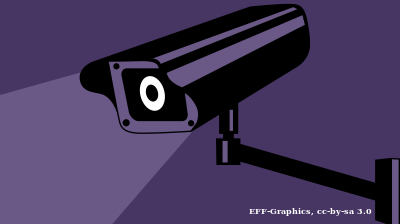Nasdaq-listed Freedom Holding Corp has started expanding its super app-led digital banking model from Kazakhstan to other Central Asian countries, deepening its regional presence before pushing further into global markets.
Freedom launched its digital bank in Tajikistan after receiving its banking licence in autumn 2024. The bank, which founder Timur Turlov says is the country’s first fully digital lender, is now expanding with credit cards, mortgages and consumer services through Freedom’s super app model.
In addition to Tajikistan, it is now eyeing Georgia and other countries in the region for launches of its digital banking ecosystem.
What started out as a digital brokerage giving residents of Central Asia and Eastern Europe access to the US stock market, has turned into a diversified financial ecosystem comprising a retail brokerage and investment bank with operations in Central Asia, Eastern Europe and elsewhere.
Freedom has also moved into retail banking, initially in its home market Kazakhstan, which has seen a fintech revolution over the past decade. Freedom has emerged as a challenger to local giants like Kaspi and Halyk Bank by integrating brokerage, banking, insurance and even lifestyle services such as grocery delivery and ticketing into a single super app.
From its base in Kazakhstan, Freedom is now looking at other markets in Central Asia and beyond. “I believe Kazakhstan was the greatest possible place for us to start, because the cost of development here is much cheaper than in the UK, for example,” Turlov said in an interview with bne IntelliNews. “Our regulator is very friendly to fintech companies, and the government itself is tech-optimistic.”
The region as a whole benefits from tech-friendly regulators, youthful demographics and low development costs, making it an obvious choice for the initial expansion of Freedom’s digital banking.
“Central Asia is a market we know very well,” Turlov said . “They speak more or less the same language, they know our technology, and they have a lot of friends who use our technology. It’s very easy to present these opportunities to them.”
Commenting on the launch in Tajikistan, he said: “We got a banking licence in Tajikistan in a very short period of time. In less than a year we completed the launch of a completely new bank, the first fully digital bank in Tajikistan, and we are now rolling out our technology, credit card business, client acquiring business, consumer super app, digital banking and digital mortgages in Tajikistan,” he added. “This gave us experience of how we can replicate the digital ecosystem we built in Kazakhstan in another country.”
The next market in Freedom’s sights is Georgia, where it is in the process of applying for a banking licence. “We are now working hard on expansion to Georgia for the same reasons [as Tajikistan]. They know us very well … they know our services.”
Elsewhere in the region, the group recently opened Freedom Broker in Bishkek, Kyrgyzstan, in June, while it has an existing brokerage business in Uzbekistan, where it has become one of the largest retail broker-dealers.
Asked whether Freedom also plans to bring its digital banking ecosystem to Uzbekistan, Turlov said: “We are interested in general to go to this market but we are still working out how to approach it.”
Turlov is clear that the company’s strategy is not simply to enter new markets with a single financial service but to deliver an entire digital banking ecosystem as the core around which additional services are built.
“It’s very difficult to survive as a standalone service. You have to be an ecosystem to compete,” he explained. “We have seen many times the competition is not between services; it’s between ecosystems, and digital banks are usually the core of the ecosystem.”
Moreover, Turlov sees the expansion in Central Asia as a first step before an eventual entry into larger markets in the Middle East, Europe and elsewhere.
“We are historically present in the EU, where we already have a lot of customers. We believe in the future we can provide not just brokerage services, but also digital banking services,” he said. “In the digital area, you need to build a comprehensive ecosystem to provide many different solutions all in one.”
When it comes to obstacles to expansion, Turlov cited regulatory approvals. “The further we go [from Kazakhstan], the more difficult it is to talk to regulators, but every year it’s getting easier. The confidence is higher, the general perception is better, because anyone who knows our financial market in Kazakhstan knows about us.”
At the same time, Freedom is expanding its brokerage business in other regions. It recently secured a brokerage licence in Turkey, where it established Freedom Yatirim Menkul Degerler JSC. It is also targeting the United Arab Emirates (UAE), where it is close to completing the licensing process to enable it to launch an institutional business model focused on the B2B segment.
“We work with banks and other national partners within the emirates' financial market, providing them with platforms and infrastructure to access various markets. Our focus is on serving a high-net-worth clientele and partnering with financial institutions, offering them not only our services but also strategic collaboration,” Turlov said.
“The emirate itself pursues multiple strategies. Licensing, however, is less of a strategic direction and more a question of how best to serve banks and introduce advanced, state-of-the-art models into the market,” he added.
As Freedom’s international growth highlights, fintech innovation is no longer the sole preserve of traditional financial centres. Central Asia, with its young populations, forward-looking regulators and relatively low development costs, is emerging as fertile ground for disruptive financial models that companies like Freedom are now taking to other markets.
“We spent a lot of time to build our approach to super apps and digital banking, so I think it will be great to participate in global competition and leverage our technology on other markets. The key idea is to try and find markets where we can get licences and where we can build an efficient team. Based on that we are looking at some opportunities,” Turlobv concluded in his interview with bne IntelliNews.
As Turlov and his team look beyond Kazakhstan’s banking sector to opportunities elsewhere, Freedom’s expansion shows how digital ecosystems born in emerging markets can increasingly compete on the global stage.
Tech

Is Kazakhstan building a digital utopia, or a China-style surveillance state?
Many Kazakhs will tell you that officials should limit their ambitions to fixing the internet speed. Others worry that the time for joking is over.

Romanian startup .lumen wins €11mn EU grant to develop autonomous delivery robots
Funds to back project aimed at developing a new generation of humanoid and quadruped robots capable of navigating pavements and crowded urban areas autonomously.

Latvian fintech Eleving Group raises €275mn in oversubscribed bond issue
Proceeds to be used to refinance €150mn in existing bonds and to expand Eleving's loan portfolio.

Roblox, Fortnite banned in Iraq over child safety concerns
Iraq's Ministry of Interior to ban PUBG, Fortnite and Roblox within next few months under 2013 law prohibiting games encouraging violence, citing threat to social security and waste of youth time.




